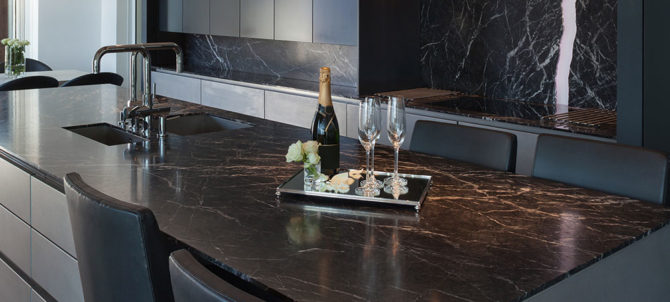
Like other homeowners, you have Clorox wipes in your home, and when you are looking to disinfect your surfaces, they must be the first things you reach out to. But not so fast. Can you use Clorox wipes on granite?
Clorox wipes contain citric acid that can wear down the sealant on your granite countertops, exposing them to stains, spills, and other forms of damage. Due to this, you shouldn’t use Clorox wipes on granite.
How should you disinfect granite countertops?
Most people will tell you to use disinfectants specifically designed for granite counters, but the truth is that finding a product that is a perfect fit for your stone is a bit tricky.
So how should you disinfect the surfaces?
The best way to go about it is to use 70% isopropyl alcohol. Spray the alcohol on the surfaces and let it sit there for 3-5 minutes to ensure the surfaces are thoroughly disinfected.
You should then wipe the surfaces dry using a microfiber cloth to eliminate as many germs from the countertops as possible. For best results, work in sections.
It can be tempting to dilute the alcohol so that you have less concentration, but don’t do this as the alcohol’s effectiveness at killing the germs significantly drops when you dilute the alcohol below 50%.
If you have scoured the stores and can’t find 70% isopropyl alcohol, use soap with antibacterial properties. Head to your local store and buy a bacterial hand washing soap.
You should then mix the soap with warm water and wipe the granite surfaces using a microfiber cloth.
How often should you disinfect your countertops?
Countertop experts recommend you disinfect your countertops once a week, but you can do it more frequently if many people are coming into contact with your surfaces. The beauty is you don’t need to hire a professional to help with the disinfecting—you can easily do it on your own.
Tips to keep granite surfaces in top shape
Other than disinfecting granite, you need to take good care of it to keep it in top shape. Some of the things you should do include:
Clean the countertops
It goes without saying that cleaning granite countertops is a must if you want to keep them looking great for decades. The cool thing is you don’t need to be fancy when cleaning the countertops.
Begin with filling your clean sink with warm water and a mild soap, then thoroughly wet a clean dishcloth before proceeding to wipe the surfaces of any spills and cramps present.
Once you are done, dry and buff the granite surfaces thoroughly with a microfiber cloth or soft terry towel to avoid streaking.
When cleaning, don’t use acidic cleaners such as lemon, lime, vinegar, or anything with ammonia or bleach as it will dull or even weaken the granite seal. Remember, the harsher, the cleaner you are using, the quicker it is to break the sealant, so avoid using harsh chemicals at all costs.
Seal the countertops
Granite is porous, meaning that it quickly absorbs spills and collects stains easily. To protect the countertops from staining easily, seal them regularly. Like cleaning, you don’t need to hire a professional to help you with it.
Begin with spraying the cleaner onto a clean countertop surface, then wipe the spray up with a clean microfiber cloth. Wait for at least 20 minutes, then apply a second layer.
For peace of mind you have thoroughly sealed your countertops, apply the sealing product at least 3 times.
While all granite surfaces require sealing, how you do it varies depending on the type of stone you have. Some surfaces are treated with resins, so you don’t need to keep sealing them. Others require sealing every 6 months to a year. It’s up to you to research and find out the type of countertop you have and how to seal it properly.
Remove stains
You need to get rid of the stains on your surfaces to keep your countertops looking great. You can remove the stains at home by yourself using baking soda or water, but if the stains are tough, you may have to hire granite contractors Raleigh that use commercial stain removal products.